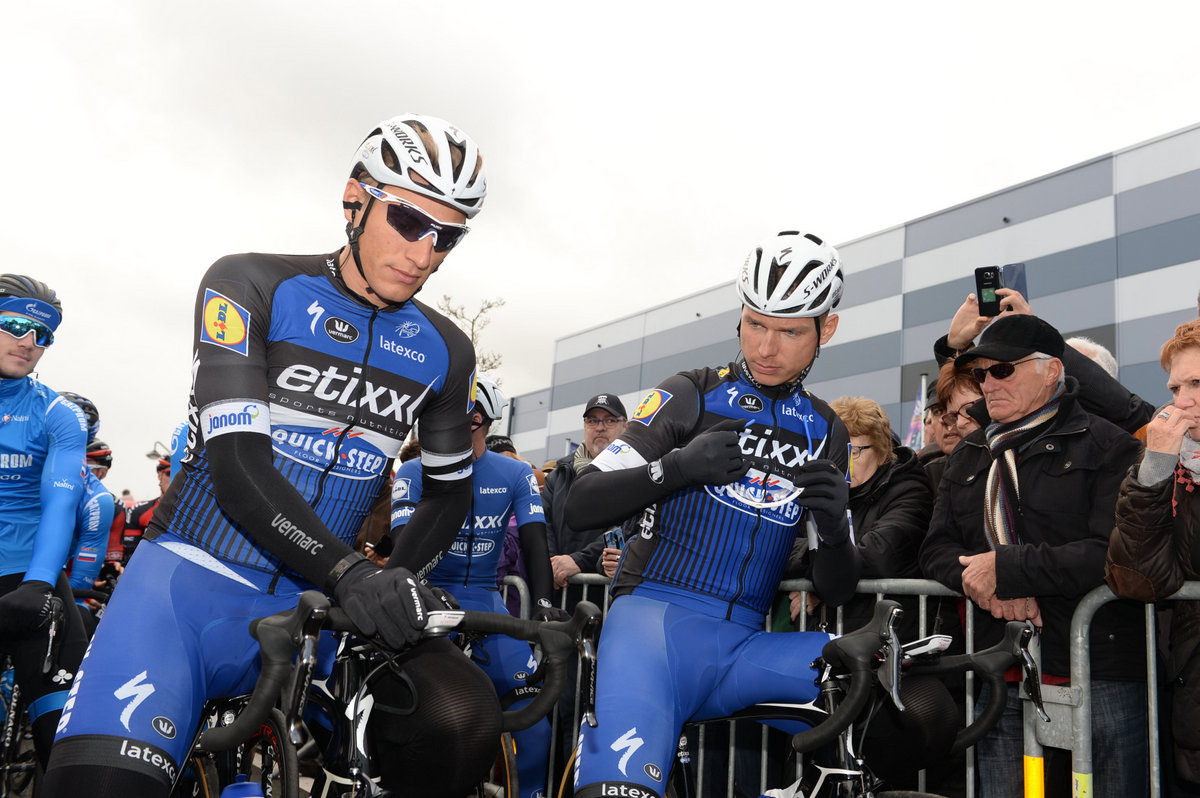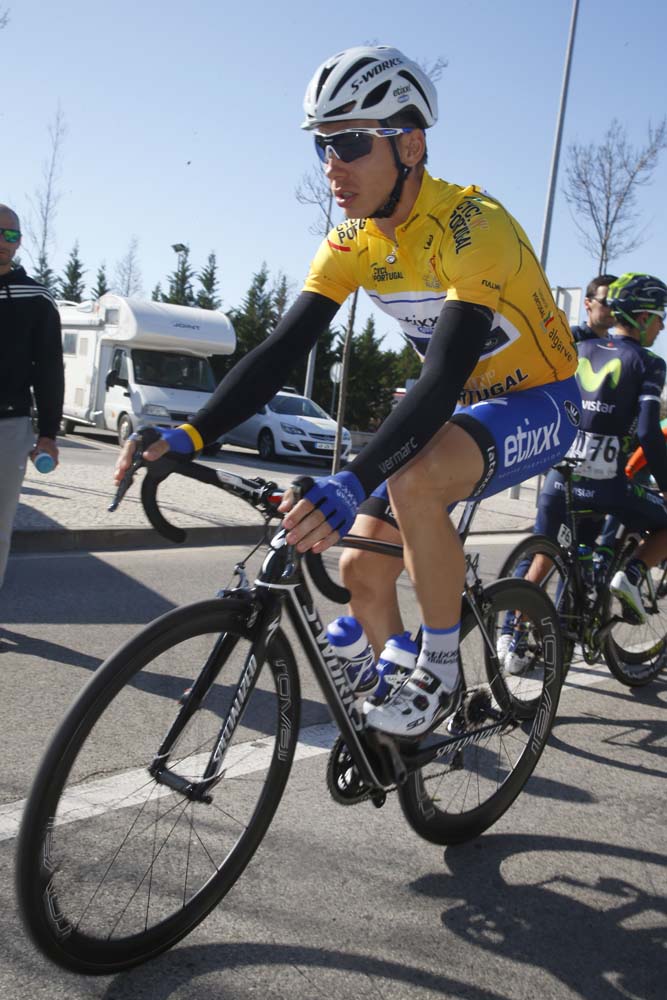Tony Martin: The most important races are still coming
German on his learning curve at cobbled classics


There are few more pressurised environments in professional cycling than Etixx-QuickStep in the week leading up to the Tour of Flanders, but there is perhaps no more prestigious school, either, for a rider belatedly discovering the cobbled classics.
Buoyed by his victory on the pavé on stage 4 of last year’s Tour de France, Tony Martin has broken with the habit of a career and decided to devote the first phase of his season to riding the Flemish classics – and, of course, Paris-Roubaix.
Martin’s induction came at Omloop Het Nieuwsblad in February, where he made it to the finish in Ghent despite a crash, and the learning curve has continued at Dwars door Vlaanderen, E3 Harelbeke and now the Three Days of De Panne.
“I had a hard start. I had to learn a lot and I still have to learn a lot. But I feel like I’m getting better and better at this metier, I’m getting to know the roads and the climbs,” Martin told Cyclingnews on the start line in Zottegem on Wednesday morning. “The process is there and I’m looking forward now to the next races. It’s a good advantage to know at least parts of the race.”
Now in his ninth season as a professional, Martin already had an inkling of the basic theory of riding in the Flemish Ardennes – positioning is nine-tenths of the law. There are certain nuances, however, that can only be picked up through practical experience. Unlike the more structured lot of the stage racer, the Classics rider, it seems, must be willing to embrace a certain degree of chaos.
“What really surprised me was how hard these races are. You don’t just go in the final, you really have to fight from the start to the finish. A lot of it feels like a really long time trial,” Martin said. “From stage racing, I’m used to it being very hard in the last hour but before that everyone looks at each other. But here you have to pay attention from start zero. Sometimes you’re already flat out after half the distance, and you still have to get to the finish. It’s not an easy metier.”
It cannot be easy, either, to learn the ropes while riding as part of one of the most heavily scrutinised teams in professional cycling, before its most expectant audience. Etixx-QuickStep’s every move is parsed and analysed in Flanders in late March, with the state of Tom Boonen’s form a particular concern. Etixx-QuickStep arrive at the Tour of Flanders after an off-key Classics campaign to date.
Get The Leadout Newsletter
The latest race content, interviews, features, reviews and expert buying guides, direct to your inbox!
“We’re missing the big win until now but the really big races are still to come,” Martin said. “I think we showed in the last few races that we are the strongest team but we miss a little bit the one guy who could make the result at the end. But the most important races are still coming.”
Paris-Roubaix
While Martin has been lining out in a supporting role in the Flemish races, there is expectation that he might be allowed to harbour a little more personal ambition at Paris-Roubaix, given his triumph over similar terrain at last year’s Tour de France. The German downplayed the idea, however, insisting his 2016 Classics campaign was something of a fact-finding mention.
“No. It would be too much to say that I’m the leader there. It’s my first participation there. I have 0.0 experience there,” he said. “I am one of the helpers – I will orientate myself on my teammates and try to support them as much as possible.
“I will see where I end up, and then I will decide on the coming years if it’s for me or not. For sure that kind of race suits me better than the races in Flanders. But Paris-Roubaix is still somewhere you need a lot of experience.”
A triple world time trial champion, Martin is well aware that riders with a pedigree against the watch have found Paris-Roubaix a more natural fit than the Tour of Flanders. Fabian Cancellara, for instance, was capable of making the winning move at Paris-Roubaix as a 23-year-old, but he would be closer to 30 before he truly shone in Flanders.
“I was also now training on the Roubaix course. I felt quite okay, I felt confident on the cobble,” Martin said. “Maybe the transition from a non-Classics rider will go faster in Roubaix than in Flanders and the other races. In Flanders you need to know a lot about the parcours and the tactics. In Roubaix, it seems to be just full gas.”
On Thursday afternoon, meanwhile, perhaps by pure force of habit, Martin plans to ride at full gas in the concluding time trial of the Three Days of De Panne. “It’s a strange situation for me, having a time trial in front of me, which is always a big goal, but still looking further for maybe Flanders and Roubaix,” he said. “But as I’m here in De Panne, I want to get a good result in the time trial.”

Barry Ryan was Head of Features at Cyclingnews. He has covered professional cycling since 2010, reporting from the Tour de France, Giro d’Italia and events from Argentina to Japan. His writing has appeared in The Independent, Procycling and Cycling Plus. He is the author of The Ascent: Sean Kelly, Stephen Roche and the Rise of Irish Cycling’s Golden Generation, published by Gill Books.